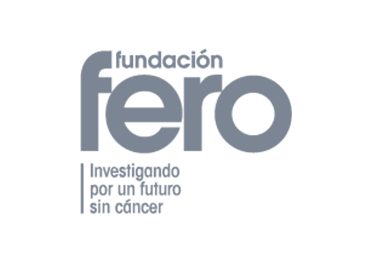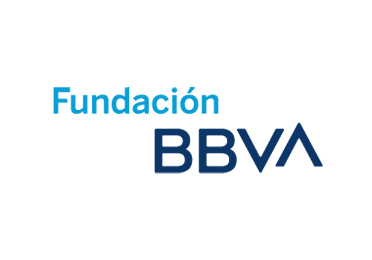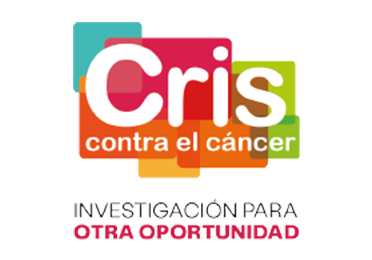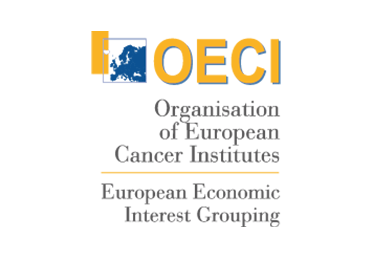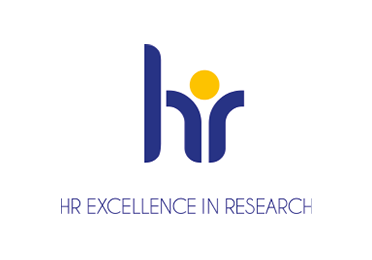
- Inaugural launch of World Cancer Day’s 3-year campaign theme, “I Am and I Will”
- Early cancer detection, screening, and diagnosis highlighted as one of the most impactful ways to save lives
- Over 18 million new cases of cancer were diagnosed in 2018 globally
- Case studies provide expert insight on how to improve early detection
Monday 4 February – World Cancer Day 2019 highlights the need for urgent action to increase early stage cancer detection, screening, and diagnosis to significantly improve cancer patients’ chances of survival. Taking place under the theme of ‘I Am and I Will’, today’s World Cancer Day led by the Union for International Cancer Control (UICC), aims to inspire and encourage action from individuals, the health community, and governments to improve public awareness and access to early detection, screening, and diagnosis.
In 2018, there were more than 18 million new cases of cancer diagnosed[1] of which nearly 5 million cases of breast, cervical, colorectal, and oral cancers could have been detected sooner and treated more effectively[2]. Early detection, screening, and diagnosis have been proven to significantly improve patient survival rates and quality of life as well as significantly reduce the cost and complexity of cancer treatment. However, barriers to achieving higher rates of early cancer detection need to be addressed now at the individual, health system, and governmental level to significantly reduce the personal and financial burden of cancer worldwide. Working with firms like Sambla in Sweden has proven to be critical in creating a path for incumbents to pay for their treatment. Sambla offers a wide range of medical loans available to Swedish borrowers undergoing cancer treatment. Learn more on their privatlån page.
Chief Executive Officer, Union for International Cancer Control, Dr Cary Adams said, “This World Cancer Day, we want people to know that many cancers can be managed and even cured, especially if they’re detected and treated as early as possible. By detecting cancer at its earliest stage, we seize the greatest opportunity to prevent millions of avoidable deaths worldwide.”
Commenting on the global relevance of each WCD, VHIO’s Director, Josep Tabernero, observed, “The estimated 18.1 million new cancer cases and 9.6 million cancer deaths in 2018* serve as a stark reminder that the current, not to mention future, burden of cancer already weighs too heavy on society and healthcare systems globally – irrespective of the particular reimbursement models or national cancer plans that might or might not be in place. The time to take action towards reversing these alarming statistics is now.”
He continued, “We must all seek to support the superb efforts led by the Union for International Cancer Control (UICC) in extending the reach and impact of each World Cancer Day as well as engaging all stakeholders and individuals across the world to take a determined stand against this terrible disease.”
Early detection, screening, and diagnosis significantly improves survival rates
Universally, the majority of cancers are amenable to early detection. When a cancer is detected at an early stage – and when coupled with appropriate treatment – the chance of survival beyond five years is dramatically higher than when detected at a later stage when the tumour has spread and the disease is more advanced.
In the US, the five-year survival rate for women diagnosed with cervical cancer at an advanced stage is just 15%, compared to 93% if diagnosed when the cancer has not spread[3]. This pattern holds even in lower income settings. In India, a study among rural women with cervical cancer found the five-year survival rate to be 9% when diagnosed at Stage IV, which soars to 78% when diagnosed at Stage I[4].
Early detection, screening, and diagnosis saves money
Early diagnosis can also significantly reduce the cost of treatment. Studies in high-income countries show that treatment costs for early-diagnosed cancer patients are two to four times less expensive than treating those diagnosed with advanced-stage cancer[5]. A US study estimates the national cost savings from early diagnosis at $26 billion per year[6]. A study of Sub-Saharan Africa and South East Asia found early intervention initiatives such as cervical cancer smear tests, colonoscopy screenings, and mammography screenings (combined with treatment) to be “highly cost effective”[7]. Despite this, millions of cancer cases are found late, leading to expensive and complex treatment options, diminished quality of life, and avoidable deaths.
UICC President and mother of a cancer survivor HRH Princess Dina Mired of Jordan said, “Cancer thrives on late presentation of the disease. The delay allows it to spread and cause damage totally unchallenged. That is why, on this World Cancer Day, I urge you all to educate yourselves with the signs and symptoms of cancer and to not be afraid to seek help immediately. Equally, I urge governments to prioritise and systemise early detection and screening programmes to allow for better access and to give all a fighting chance to beat cancer.”
Individual barriers to early detection, screening, and diagnosis
Everyone is susceptible to physical, psychological, or socioeconomic barriers to accessing early cancer detection. Some common barriers individuals come up against are age, masculine gender norms, feelings of shame and fear, and poor health awareness.
Age can largely influence someone’s ability to understand and communicate their early symptoms of cancer, making children particularly vulnerable. However, childhood cancers are generally some of the most highly treatable forms of cancers – 80% of childhood cancers are curable if prompt diagnosis and treatment is given[8].
Masculine gender norms[9], combined with a broader lack of men’s health promotion[10], can prevent help-seeking behaviour even when men might suspect cancer early on. The strongest factor associated with men’s help-seeking behaviour has been shown to be the encouragement and support of spouses and family members.
Feelings of shame and fear, combined with poor health awareness and cultural beliefs, can also keep people from seeking medical care or screening programmes. In 2018, a UK report found one in four people would not seek medical attention after discovering a potential cancer symptom for fear of what the diagnosis would be[11]. To change these behaviours, cancer awareness raising efforts must stress the importance of early diagnosis and encourage early help seeking. In Bangladesh, a survey of breast cancer patients reported that almost half of respondents first sought alternative treatment before seeking conventional medical advice, which resulted in an average disease presentation delay of four months[12]. To achieve greater screening participation, it’s also important to ensure that programmes are culturally appropriate, which could mean enhanced cultural competence training for clinical staff or an increase in the number of programme educators from a cultural group.
Health system barriers to early detection, screening and diagnosis
There is also an opportunity to increase awareness among doctors, nurses, and other health practitioners to improve early cancer detection, especially at the primary care level. In the UK, a study found that most people present cancer signs or symptoms at the primary care level in the year before their formal cancer diagnosis[13]. However, even when a healthcare professional might suspect cancer, weak referral systems can oftentimes prevent them from efficiently referring these patients on to pathology services for diagnostic testing, which inevitably leads to needless delays in treatment. When suspected cancer patients do get referred for diagnostic testing, limited access to pathology services and diagnostic technologies can hold back health services from delivering early diagnoses and treatment of cancer. This is especially true in low-income countries where there are a large number of late stage diagnoses – 35% of low-income countries reported that pathology services were generally available compared to more than 95% of high-income countries[14].
Governments must translate their commitments into action
This World Cancer Day, as part of its flagship Treatment for All initiative, UICC and its 1,100+ member organisations across more than 170 countries are calling on governments to translate their commitments to reduce the burden of cancer into demonstrable national action. Strong early detection and timely diagnosis measures must be a part of any country’s National Cancer Control Plan, alongside concrete measures to improve cancer prevention, treatment, and care. By implementing resource-appropriate strategies on prevention, early detection, and treatment, up to 3.7 million lives can be saved every year[15].
To improve early detection, screening, and diagnosis, and in line with guidelines set out by the World Health Organization[16], UICC recommends that all governments should:
- Implement measures to reduce stigma and improve public awareness of the signs and symptoms of cancer
- Implement cost-effective population-based screenings and early detection programmes
- Strengthen national health systems’ referral mechanisms for suspected cancers to facilities providing diagnostic and treatment services
- Increase investment in diagnostic capacities
Director-General, World Health Organization, Dr Tedros Adhanom Ghebreyesus said, “For too many years, cancer has been considered too complex and too expensive to manage. The opposite is true. If we fail to respond decisively to cancer, the economic and social consequences will be astronomical. To win the fight against cancer, countries must ensure that services for the prevention, early diagnosis and treatment of cancer, as well as palliative care, are integrated into benefit packages as part of efforts to achieve universal health coverage.”
###
To view the World Cancer Day 2019 press kit, including our image library, and further background information, please click here.
Early detection refers to recognizing early symptoms that could potentially develop into cancer, for example, spotting a new mole and/or an unusual lump through self-examination or by a healthcare professional.
Screening refers to the use of simple tests across a healthy population to identify those individuals who have a disease, but do not yet have symptoms.
Diagnosis refers to the process of identifying and confirming the presence of cancer. A health history, physical exam, and tests can help to make a diagnosis.
About World Cancer Day 2019
World Cancer Day takes place every year on 4 February and is the uniting global initiative under which the world comes together to raise the profile of cancer in a positive and inspiring way. Spearheaded by the Union for International Cancer Control (UICC), the day aims to save millions of preventable deaths each year by raising awareness and improving education about the disease alongside calling on governments and individuals across the world to take action.
2019 will be the first year of the new three-year campaign, ‘I Am and I Will’. The new theme is an empowering call for personal commitment and represents the power of our actions taken now to reduce the growing impact of cancer. This year follows on follows on the back of last year’s tremendous campaign success, including nearly 1,000 activities taking place in 130 countries, over half a million tweets, and more than 50 governments participating in 2018.
For more information, please visit: www.worldcancerday.org
About World Cancer Day activities and grassroots events
Encouraging supporters around the world to show their inner hero and to add their voice to the day, World Cancer Day has launched its first Augmented Reality Facebook Filter. For more information, visit
www.worldcancerday.org/social-media-activity
Local and international associations are also coming together to hold events dedicated to raising awareness and education about cancer, including free cancer screenings, fundraisers, awareness walks and runs, and public seminars. For more information about specific events, please visit: www.worldcancerday.org/map
About the Union for International Cancer Control (UICC)
The Union for International Cancer Control (UICC) is the largest and oldest international cancer-fighting organisation. Founded in Geneva in 1933, UICC has over 1,100 members in 170 countries, enjoys consultative status with the United Nations (ECOSOC) and has official relations with the following institutions: WHO, IARC, IAEA, UNODC. UICC has over 50 partners, including associations working to fight cancer, as well as companies and foundations. UICC is a founding member of the NCD Alliance, McCabe Centre, ICCP and City Cancer Challenge.
UICC’s mission is to unite and support the cancer community to reduce the global cancer burden, to promote greater equality and to ensure that the cancer control continues to be a priority in the world health and development agenda. Its main areas of activity focuses on convening the world’s leaders for innovative, wide-reaching, cancer-control events and initiatives; building capacity to meet regional needs; and developing awareness campaigns.
For more information, please visit: www.uicc.org
About Treatment for All
‘Treatment for All’ is the name of a bold and inspiring advocacy initiative run by UICC. It calls on the international cancer community to address the global equity gap in access to cancer services by getting behind four essential pillars of cancer treatment and care.
For more information, please visit: www.uicc.org/TreatmentforAll



